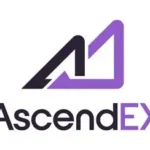In this article, I will discuss the difference between Zeta and Zeta Chain. While Zeta focuses on decentralized finance (DeFi) applications, Zeta Chain serves as a cross-chain interoperability protocol.
Understanding these distinctions is crucial for developers and users seeking to navigate the evolving landscape of blockchain technology and its various applications in finance and connectivity.
What Is ZETA?
ZETA is the internal Coin and Token of ZetaChain. The currency can fulfill multiple roles, including as a means of making payments, participating in staking, etc.
ZETA coin is used to make the requisite transactions and execute the smart contracts while performing cross-chain transfers.

With regard to ZETA as a utility token, the holders are extended the power to vote and make proposals to govern the network in a decentralized manner.
They enable users to stake liquidity on DeFi applications, earn rewards, and trade tokens across blockchains.
What is ZetaChain?
ZetaChain is a blockchain platform that is intended to allow interaction across several blockchains.
Users and developers can interact with Ethereum, BNB Chain, and other networks without having to wrap/swap the assets.
It is possible to develop Zeta chain applications that support cross-chain smart contracts.
It focuses on a decentralized validator architecture that provides security and scalability for needs where cross-chain is operational.
ZetaChain aims to achieve a molded ecosystem that enhances ease in developing DeFi and dApps across several blockchains.
Key Differences Between Zeta and ZetaChain
| Aspect | Zeta | ZetaChain |
|---|---|---|
| Definition | The native utility token of the ZetaChain platform. | A Layer 1 blockchain platform for cross-chain interoperability and dApps. |
| Function | Used for transaction fees, staking, and governance. | Facilitates seamless data exchanges and asset transfers across blockchains. |
| Role | Powers the ZetaChain ecosystem with financial incentives. | Provides the infrastructure for developing and operating decentralized apps. |
| Usage | Allows users to pay for network services and participate in voting. | Enables developers to build applications that interact with multiple blockchains. |
| Governance | Token holders can vote on network proposals. | Implements and supports various governance mechanisms within the ecosystem. |
| Integration | Integrated into the ZetaChain platform for utility purposes. | Serves as the overarching framework connecting different blockchain networks. |
Is ZetaChain (ZETA) a Good Investment?
ZetaChain (ZETA) provides an interesting opportunity for any investor as it aims to address the problems of interoperability and scalability in the blockchain sector.
With the development of cross-chain transactions, ZetaChain will lead to a more integrated and effective ecosystem.
Of course, as with any investment, it carries some risks, including losses due to fluctuations in the market and competition with other blockchain projects.
It is advisable to do ample research and assess your risk appetite prior to investing.
Where to Buy ZETA & ZetaChain
ZetaChain (ZETA) can be traded on a number of well-recommended exchanges. Below are some of their:
Upbit: The ZETA exchange has a ZETA/KRW trading pair
OKX: Another well-known exchange on which ZETA can be traded.
Coinbase: Users have ZETA trading and conversion-related options.
Kraken: Features live price chart and has ZETA as a trading option.
BingX: One more place where ZETA can be bought and traded.
As always, carefully read the listings and find out which trading pairs allow you to buy ZETA.
All investors should consider all elements, such as extra costs and reliability of the chosen exchange, as well as clients’ feedback.
Key Features ZETA & ZetaChain
| Feature | ZETA | ZetaChain |
|---|---|---|
| Type | Cryptocurrency token | Blockchain platform |
| Primary Use | Utility token for transactions and staking within the ZetaChain ecosystem | Multi-chain platform enabling seamless cross-chain interoperability |
| Cross-chain | Supports multiple blockchains for transferring assets and bridging liquidity | Facilitates cross-chain smart contracts and token transfers without wrapping assets |
| Security | Focuses on decentralized security, including staking and validator nodes | Secure cross-chain operations with decentralized validators |
| DeFi Integration | Powers decentralized finance (DeFi) applications, allowing liquidity staking and swapping | Supports DeFi protocols and applications across multiple blockchains |
| Native Token | ZETA | ZETA (also serves as the gas fee token for transactions across chains) |
| Governance | Community-driven governance allowing ZETA holders to vote on proposals | Decentralized governance for managing network upgrades and key decisions through ZETA token holders |
| Scalability | Optimized for scalable decentralized applications | Supports scaling solutions across different blockchains, ensuring smooth interoperability |
| Smart Contracts | No direct, smart contract functionality | Supports cross-chain smart contracts, enabling interactions across various chains (Ethereum, BNB, etc.) |
| Ecosystem | The ecosystem spans multiple blockchain networks, including Ethereum, BNB Chain, and others | The ecosystem spans multiple blockchain networks, including Ethereum, BNB Chain, and others. |
Conclusion
In conclusion, Zeta refers to a specific layer of blockchain technology focusing on decentralized finance (DeFi) solutions.
In contrast, Zeta Chain is a cross-chain interoperability protocol that facilitates seamless transactions across different blockchain networks.
Understanding these differences highlights how Zeta Chain enhances the broader Zeta ecosystem by enabling greater connectivity and flexibility for users and developers.










